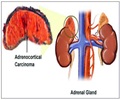The physical activities of a group of farmers in central Bolivia may give valuable insight into how industrialization can affect health and wellness

"With the Tsimane, we see an environment that is more like that in which humans evolved, and for which our systems are calibrated," said Trumble, a postdoctoral researcher in anthropology at UCSB and the paper's lead author. The paper was written with Gurven, a UCSB professor of anthropology and co-director of the Tsimane Health and Life History Project, a collaboration between UCSB and the University of New Mexico.
According to Trumble, whose research lies at the intersection of hormones, behavior, and the environment, testosterone levels are closely related to the availability of food energy. When young men skip even a single meal, their testosterone levels can drop as much as 10 percent. Fast for a couple of days, and they decrease to castrate levels.
"The same is true for infection," he added. "An infection from a pathogen or parasite –– even injuries, burns, or surgery –– all cause an immediate decrease in testosterone."
The body uses food energy for a number of critical processes. Among them are building muscle mass and maintaining proper immune function. When food energy is limited, the body has to choose between one and the other. For populations in industrialized countries like the United States, there isn't much of a tradeoff," Trumble said. "I can go to the grocery store and gather 20,000 calories in 10 minutes without breaking a sweat. I don't have to worry about a deficit."
However, for a group such as the Tsimane, who are more physically active than most Americans –– and use a lot more food energy –– but also have to grow, hunt, or fish for the vast majority of the calories they consume, the tradeoff is much greater. In addition, the Tsimane's regular exposure to pathogens and parasites requires additional calories for maintaining necessary immune function.
Advertisement











